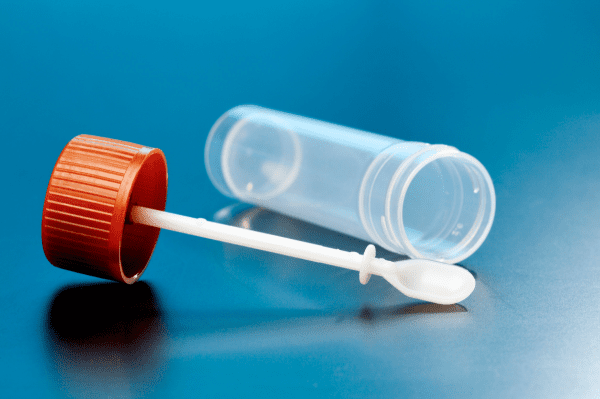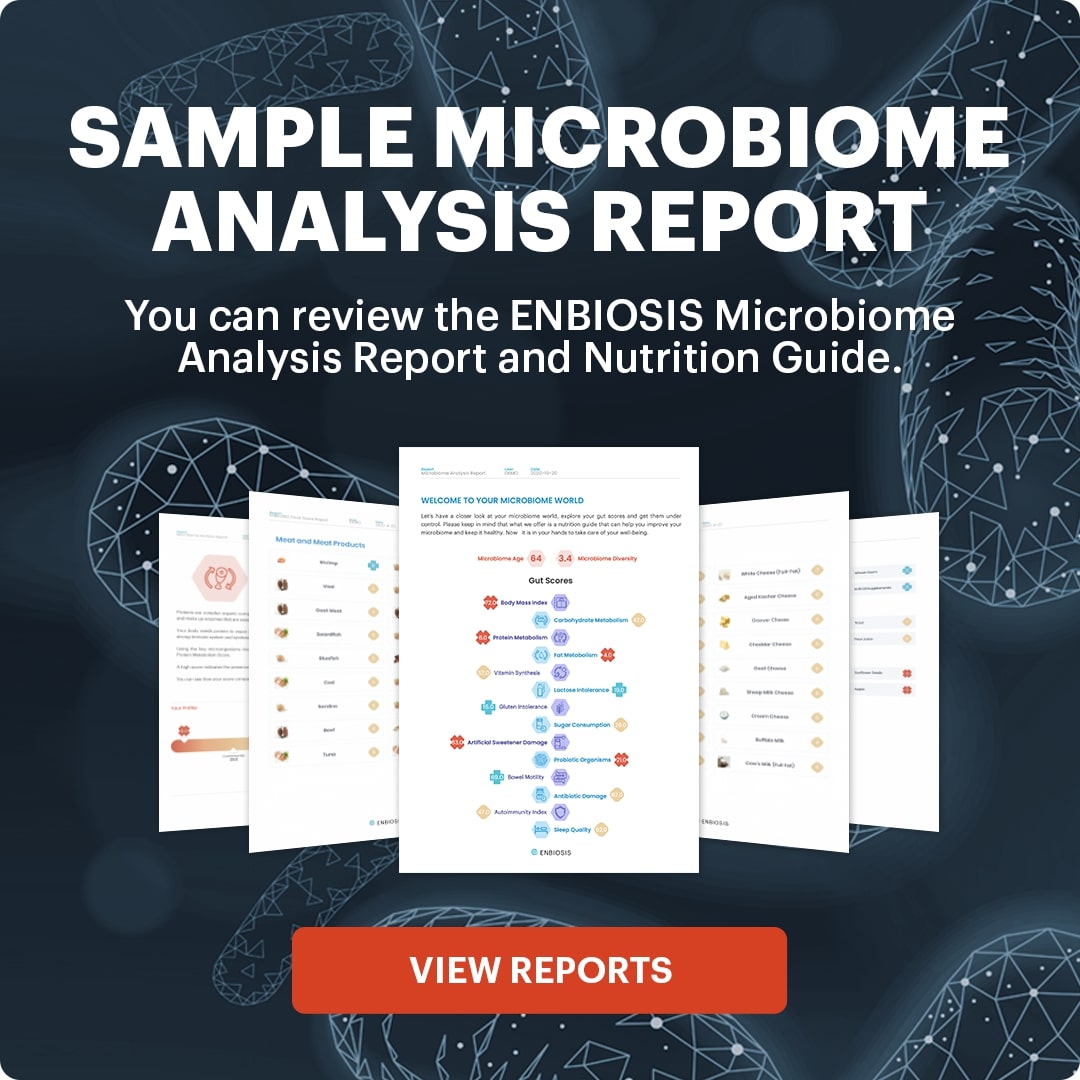Living with Irritable Bowel Syndrome, or IBS, can be a daily challenge, affecting not just your digestive health but also your overall well-being. If you’re one of the millions of people struggling with IBS, you know how frustrating it can be to find effective relief. But what if there was a way to understand your symptoms better and manage them more effectively? Join us in this blog as we answer some of your questions about IBS and discover how gut microbiome testing may help you take control of your digestive health.

Table of Contents
What is IBS?
Irritable Bowel Syndrome (IBS) is a chronic digestive disorder that affects the large intestine. It is a common condition, affecting around 10–23% of adults across the world, and is characterized by a group of symptoms that occur together and can significantly impact a person’s quality of life. As a chronic condition, IBS requires long-term management to control the symptoms.
What Are the Common Symptoms of IBS?
IBS symptoms can prove tricky to manage as they can vary greatly from person to person and can be influenced by diet, stress, and other factors. However, the symptoms of IBS often include:
- Stomach pain and cramps (especially after eating)
- Bloating and discomfort
- Diarrhea or constipation, or alternating between the two
- Changes in bowel habits
- Mucus in the stool
- Increased gas
What Causes IBS?
While the exact cause of IBS isn’t known, several factors are thought to play a role in the condition, including:
- Abnormal contractions of muscles within the intestines which can cause food to pass through either too quickly or too slowly
- Problems with the nerves in your digestive system
- Severe gastric infection or an overgrowth of bacteria within the intestines
- Changes in the microbes living within your gut – research suggests that the gut microbiome of individuals with IBS differs from those without the condition
- Stress and emotional wellbeing (due to the complex connection between our brain and gut)
- Family history of IBS
How Can Diet Affect IBS?

Certain foods can act as a trigger for IBS symptoms, meaning that diet can play a key role in helping to manage the condition.
Some common dietary IBS triggers include:
- Dairy products
- High-fat foods
- High fructose foods
- Caffeine
- High-fiber foods, including certain fruits and vegetables
- Artificial sweeteners
- Carbonated drinks
- Alcohol
There is evidence to suggest that individuals with IBS may benefit from certain dietary changes. For example, evidence shows that up to 86% of IBS patients following a low fermentable oligosaccharide, disaccharide, monosaccharide, and polyols (FODMAP) diet experience an improvement in their gastrointestinal symptoms. A low FODMAP diet involves reducing or avoiding foods that are hard to digest and can cause uncomfortable gastric symptoms such as bloating, gas, and diarrhea. Examples of high-FODMAP foods include certain fruits (e.g., apples, pears), vegetables (e.g., onions, garlic), dairy products, and sweeteners.
Likewise, some people with IBS find that avoiding gluten—a protein found in wheat, barley, and rye—can help to reduce symptoms, even if they do not have celiac disease. Foods containing gluten include most cereals, grains, pasta, and many processed foods.
While low FODMAP diets can improve IBS symptoms in the short term, they are very restrictive and can be challenging to follow. Long-term adherence to these standard elimination diets can lead to malnutrition and a decrease in microbiome diversity. For example, patients following a low FODMAP diet have been shown to have reduced levels of Bifidobacterium, which is one of the most beneficial bacteria for IBS patients. This loss of beneficial gut bacteria can lead to a worsening of IBS symptoms and other potential health problems.
How is IBS Diagnosed?
While there is no definitive test to confirm IBS, it is typically diagnosed based on symptoms and by ruling out other conditions. To rule out other causes of your symptoms, your doctor may recommend tests including a stool test, blood tests, or a colonoscopy. In addition to these tests, your doctor will likely take a detailed medical history from you and perform a physical examination. They will ask you about the symptoms that you are experiencing, as well as how often you get them and if you have noticed any factors that seem to trigger them. It may be helpful for you to keep a detailed symptom diary so that you can remember everything that you need to discuss.
What Are the Treatment Options for IBS?
Although IBS is a long-term condition with no cure, there are many treatment options that can help to manage your symptoms. These include:
- Dietary Changes: This could mean avoiding foods that trigger your symptoms, opting for high-fiber foods, eliminating gluten, or following a low FODMAP diet. However, as discussed above, these standard elimination diets don’t take into account individual differences in your gut microbiome, and can often end up doing more harm than good. This is why personalized diets, tailored to your unique gut microbiome, often prove more effective at managing IBS symptoms.
- Probiotics: These can help to improve gut transit time and the frequency and consistency of bowel movements.
- Regular Exercise and Staying Hydrated
- Relaxation Therapies to manage stress
- Certain Medications: This will depend on your symptoms, but could include laxatives for constipation, loperamide for diarrhea, antispasmodics to treat abdominal spasms and associated pain, or low-dose anti-depressants.
It is often a case of trial and error, where you need to try a few different treatments before you find the one that works best for you.
How Can Gut Microbiome Testing Help with IBS?

If you have IBS, you might be considering whether to get your gut microbiome tested. This can be a helpful step in understanding your gut health better. Gut microbiome analysis provides valuable insights into the ecosystem of bacteria in your gut. This is important as an imbalance of these microbes is often linked to symptoms of IBS. By understanding the unique makeup of your gut microbiome, you can take steps to restore its balance and improve your symptoms.
The data gathered following gut microbiome testing can help you and your healthcare provider to tailor IBS treatments more effectively. For example, they may recommend personalized dietary changes or specific probiotics. It can also help to identify food sensitivities and guide nutritional choices to promote a healthier gut environment. Regular gut microbiome testing can help monitor gut microbiome changes over time, allowing your treatments to be adjusted as needed.
Why Choose ENBIOSIS for IBS Gut Microbiome Testing?
At ENBIOSIS, we offer AI-powered gut microbiome testing that provides personalized insights and recommendations tailored specifically for you and your gut bacteria. Our advanced technology analyzes your gut microbes and provides a tailored plan to help you manage your IBS symptoms effectively.
Our clinical study showcases just how effective our AI-driven personalized nutrition approach is. An astounding 78% of patients experienced significant improvement in their IBS symptoms after following our personalized diet plan for six weeks. These improvements were also associated with positive changes in the gut microbiome.
Furthermore, our multicenter randomized controlled trial, published just recently in the American Journal of Gastroenterology, compared our personalized diet approach to the low FODMAP diet and the results were remarkable. Compared to the low FODMAP diet, our personalized approach showed significant and better improvements in quality of life, levels of probiotic bacteria, and microbiome diversity, as well as a reduction in depression and anxiety levels. These enhanced improvements were seen across all IBS sub-types, indicating that our personalized approach is a more effective long-term solution for managing IBS.
The process of having your gut microbiome tested with ENBIOSIS is simple and involves just four key steps:
- Collect a stool sample using our easy-to-use at-home kit and send this back to us free of charge.
- Our lab analyzes your gut microbiome using advanced sequencing technology and then imports the data into our cutting-edge ENBIOSIS software.
- Our advanced ENBIOSIS AI algorithm produces data-driven nutrient scores designed to restore balance to your unique gut microbiome.
- We provide you with personalized dietary recommendations and prebiotic and probiotic supplement suggestions, accessed via our user-friendly platform.
Get Started with ENBIOSIS IBS Gut Microbiome Testing Today!
Get started with ENBIOSIS and discover the personalized path to managing your IBS symptoms effectively. Contact us today to learn more and begin your journey to better gut health!

